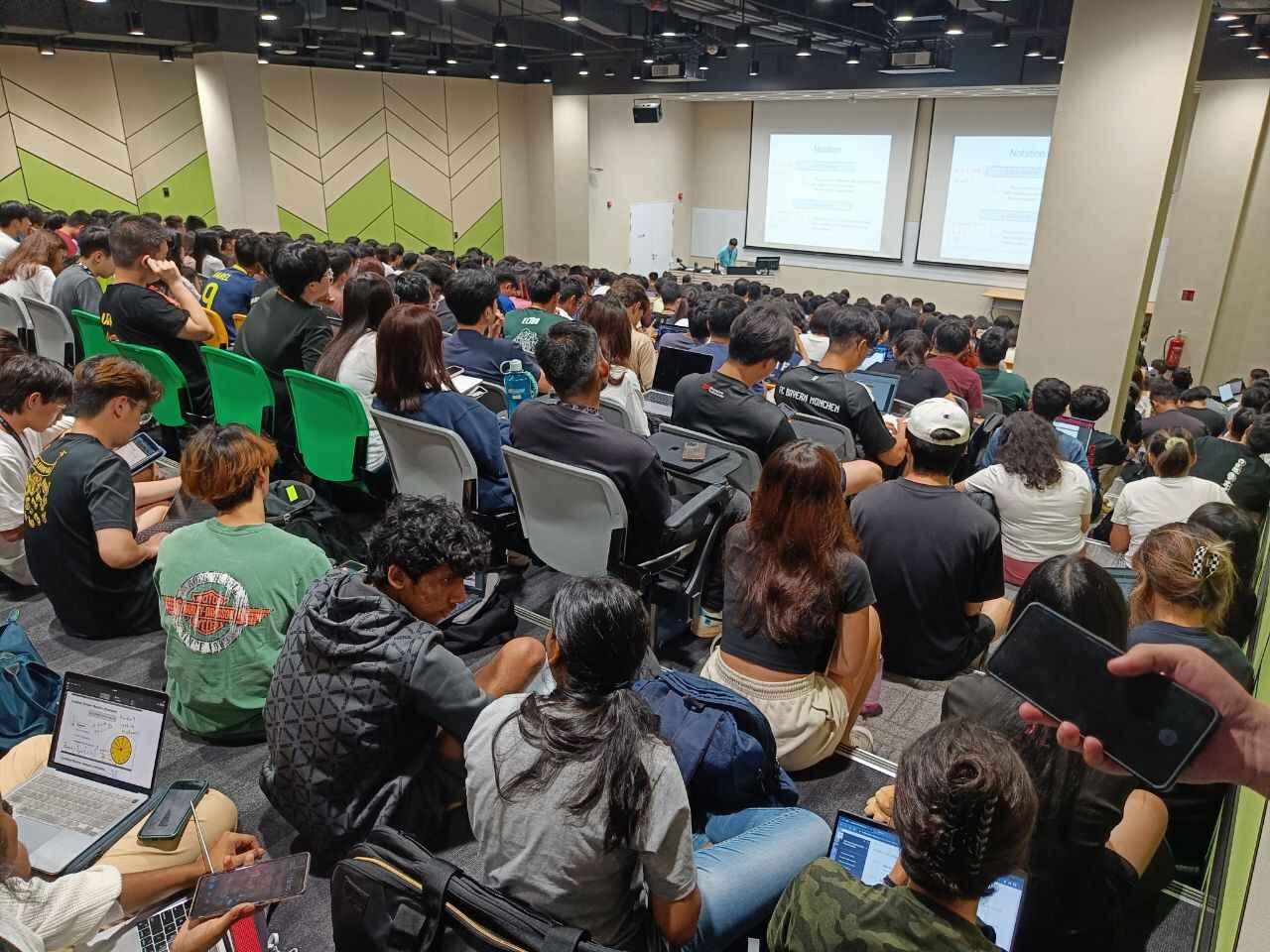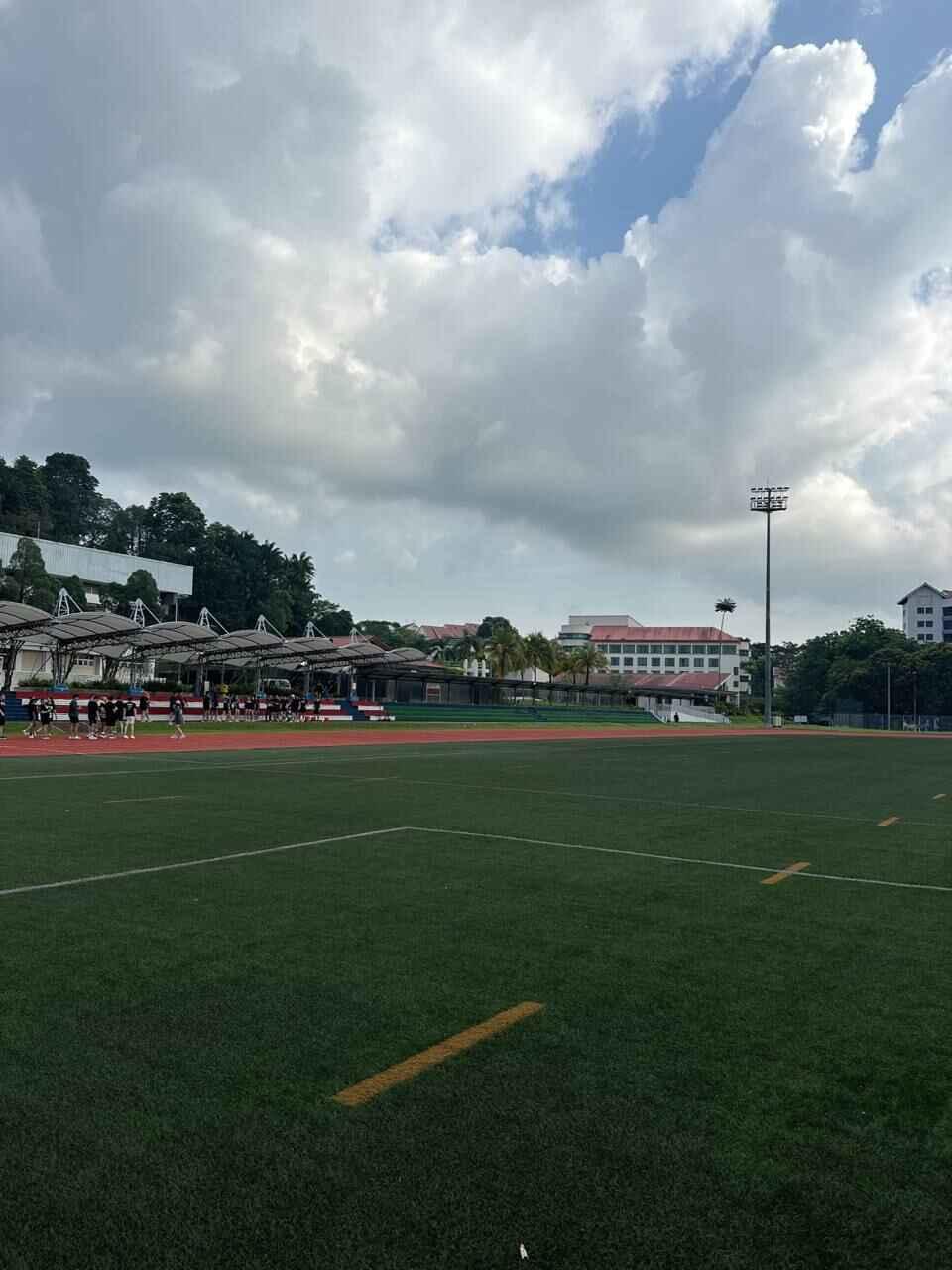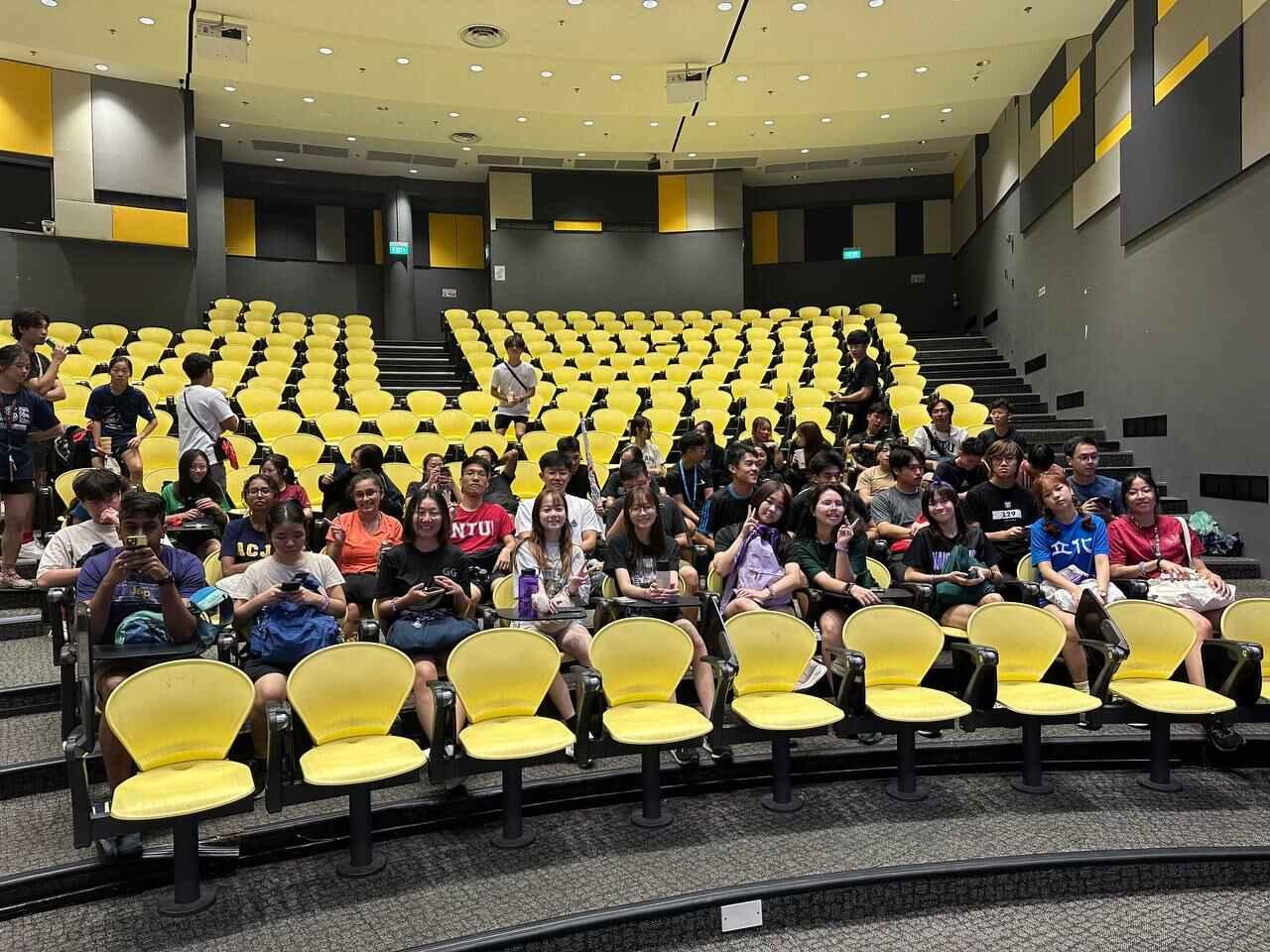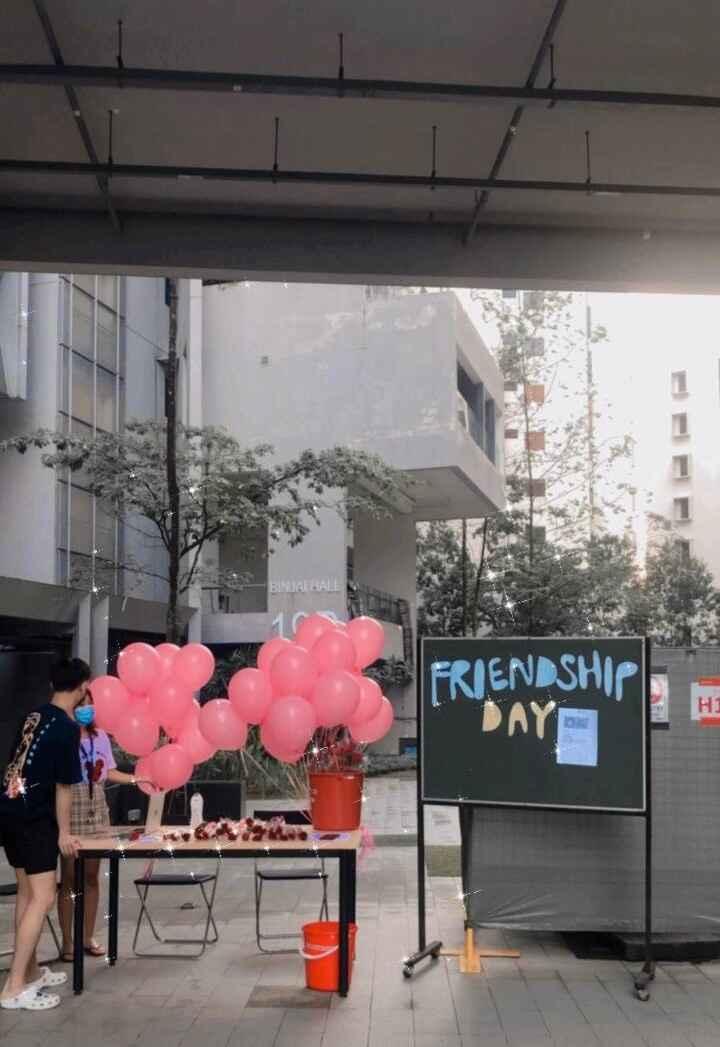What Students Say
Likes
- Diverse Community - NTU's multicultural environment has given me the opportunity to interact with people coming from varying cultures from different parts of the world.
- Cultural Integration - NTU has a very strong Indian society, which celebrates and organise Indian festive events, allowing students to feel like at home
- Networking Opportunities - NTU gives its students the access to an extensive alumni network and also hold many networking events where we get the chance to meet and learn from professionals.
Dislikes
- Food Options - NTU has very limited Indian cuisine in campus food courts, and vegetarian options might not be as diverse. Also all restaurants close around 9pm, so very few late night food options.
- Weather and Climate - Singapore has a very hot and humid weather, with rain pouring very unexpectedly, so need to carry umbrellas everywhere.
- Social Adjustments - Initially it might be a bit difficult to build friendships with local students due to cultural differences and they often don't interact with students outside their culture. Hence, Group Projects sometimes are filled with immense challenges.
Course Curriculum
- The course curriculum is challenging but manageable if you study regularly. So the courses require you to complete weekly assignments. So, if you are done with the weekly stuff, then you won't face any difficulties. As the entire weightage does not rely only on final, small small scores build up to your final grade.
- The courses are usually a mix of theoretical and practical learning. Lectures usually teach you the theory stuff, which you can polish in tutorial classes. While labs while giving the opportunity to get the hands-on experience.
- Negative - Sometimes the coursework can be a bit overwhelming, with a lot of clashing assignments, so instead of procrastinating for the last minute, students should finish the assignments once released.
- Positive: The professors and tutors are extremely helpful and reachable. However, the effort to reach out must be made by the student. I remember, in one of my courses, I had a doubt in one of the topics. My tutor went a step ahead and gave me more practice questions to help me clear out that topic.
- Usually 1-2 lectures, 1 tutorial, or 1 lab per day.
- Lectures have the entire batch of around 800 students. Tutorials have around 20 students. Labs have around 40 students.
- Indians are around 150.
Admission Experience
-
I had applied to the following universities:
- NTU, Singapore: accepted and currently studying here
- University Of Waterloo, Canada, accepted; also received highest engineering scholarship of 15000 CAD
- University Of Toronto, Canada—accepted—also received highest engineering scholarship of 10000 CAD
- University of Melbourne, Australia—accepted
- I was not rejected from any college that I applied to. I received confirmed admission from all the universities that I applied to
- I chose NTU because it was nearer to other universities that I applied to. Canada being way too far is the reason why NTU was my first option. Also, my brother and my uncle have also graduated from NTU with a degree in Computer Science and Engineering, so I managed to get opinions and reviews from family members who attended the university in person.
- NTU's application process is the most simple. The main focus is just being 12th Board Marks for CBSE board. No interview.
- 1 SOP. Can submit IELTS to get exemption from English proficiency courses.The easiest application process. Just 1 form to fill. No challenges whatsoever.
-
Nanyang Technological University (NTU) in Singapore has two intakes each year: August and January.
August: The primary intake and the most popular option with higher admission chances
January: Limited to specific programs. - I opted for the August Intake.
My application was submitted in around February. And the application result was out in July. In between, once the CBSE releases the results, NTU will give a time of 2-3 days to upload the official results, which is a factor in your application.
Faculty
- The faculty-to-student ratio is quite balanced, around 1:20.Professors usually give individual attention during project classes or tutorial/doubt classes.
- Tutorials are a more interactive class where we can ask questions and discuss ideas.
- The teaching style is a mix of lectures, hands-on sessions in the form of tutorials, and group projects. Professors use real-world examples and case studies to make lessons relevant.
- Each student gets assigned a career coach to whom we can approach regarding career advice and CV recommendations.
- I often admire the international professors who end up teaching a module. They often come to NTU for a year to conduct research, and then they often teach some modules. I really enjoy their classes.
Campus Life
- NTU has a main campus located in Jurong West, Singapore, which is massive and feels like a mini-city.
- Library: There are many libraries in each school that are amazing, with plenty of study spaces, books, and even beanbags for relaxing.
- Sports Facilities: There are gyms, swimming pools, football fields, badminton courts, and even a rock climbing wall.
- Medical Services: The campus clinic offers basic healthcare, and there’s a counselling centre for mental health support.
Part Time Jobs
- Teaching assistant (TA) and research assistant (RA) roles are common only for postgraduate students. But some undergraduates with strong academic records can also apply for the same but need to have a strong, good relationship with the leading professor. The availability depends on the department and professors’ projects, but they are competitive.
- Pay ranges from $10 to $20 per hour, depending on the role and responsibilities. But can also be unpaid for an unexperienced undergraduate.
Students can work in libraries, canteens, or administrative offices. Hourly wages for these jobs are typically around $8 to $12 per hour.
International students are only allowed to work 16 hours per week during the semester and full-time only during vacations or during a credit-bearing internship.
Securing on-campus jobs can be challenging due to high demand. Strong networking with professors can improve your chances. -
Students usually go for in-campus jobs, such as working part-time in the library or administrative office as student interns.
Some students can also get hourly paid and work part-time during their study semester under a professor as a research assistant or a teacher assistant in their ongoing research projects or can help them with their course teachings.
However, these TA and RA positions are quite competitive and require a good relationship with the professor.
Placement
- About 90–95% of graduates secure full-time employment.
- The average starting salary for graduates depends on the field and their course of study.
- Engineering/Technology: SGD 3,500 to $5,500 per month.
- Campus Recruitment: NTU organises the biggest annual career fair and recruitment drives, which allow students to land good jobs and internships. Also allow students to connect with professionals and company recruiters.
- Online Portals: NTU provides online platforms to find internships and Jobs
Accommodation
- NTU gives you accommodation for all 4 years. Hence, I have been staying on campus since my first semester and it has been a great experience.Easy access to classes, great hostel community, access to subsidised food inside campus.
- Monthly rent for double shared room: 400 SGD per month + air conditioning charges
- Usually students don't get single aircon rooms in their preferred halls as they are quite competitive. However, double shared aircon rooms are easily available.
- My accommodation is inside campus, so all my classes are easily accessible. All the hostels or accommodations provided by NTU, are inside campus only.
- There are also apartments available to rent outside the campus for around 1500 SGD per month. However, you need to find these accommodations a bit early. like start hunting at least 6 months before the move-in date.
Exams
- You can submit your IELTS score to get an exemption from taking English Proficiency exams. Minimum, I think, is band 6.
- To complete the admission process, you need the following documents:
- an updated CV,
- a Statement of Purpose (SOP),
- transcripts from Grade 9 onwards,
- Grade 12 results, which must be uploaded once released by CBSE.
- No interview is required or conducted as part of the application process.
Events
- NTU Fest: A yearly highlight with concerts, games, and food stalls—it’s a perfect mix of fun and community vibes.
- Diwali Night
- Hall Olympiad
- NTU has over 200 student clubs, so there’s something for everyone:
- Cultural Clubs
- Hobby Clubs
- Professional Clubs
- Sports: You can join teams for football, basketball, and cricket
- Cultural Events
- Student Organizations
Fees
- All fees are in SGD.The annual breakdown includes tuition fees ($36,000), hostel fees ($4,000), and other fees ($1,000), totalling $41,000.
- Fees are charged per semester.
- Additionally, my monthly expenses, including food and transport, amount to $4,000. But this can depend on your dining preferences and how often you go out of campus. This can be lower if you regularly dine in inside the campus food courts, which provide subsidised food.
Scholarship
- In Singapore, scholarships are replaced by a bond system. By signing a bond before starting your first year, the university fully exempts tuition fees. In return, you must work for 5 years in a Singapore-based company. This system ensures students contribute to the local workforce after graduation.
- I did not sign the bond for my undergraduate, as I was not sure if I would be working in Singapore after my 4 years.




.jpg)




